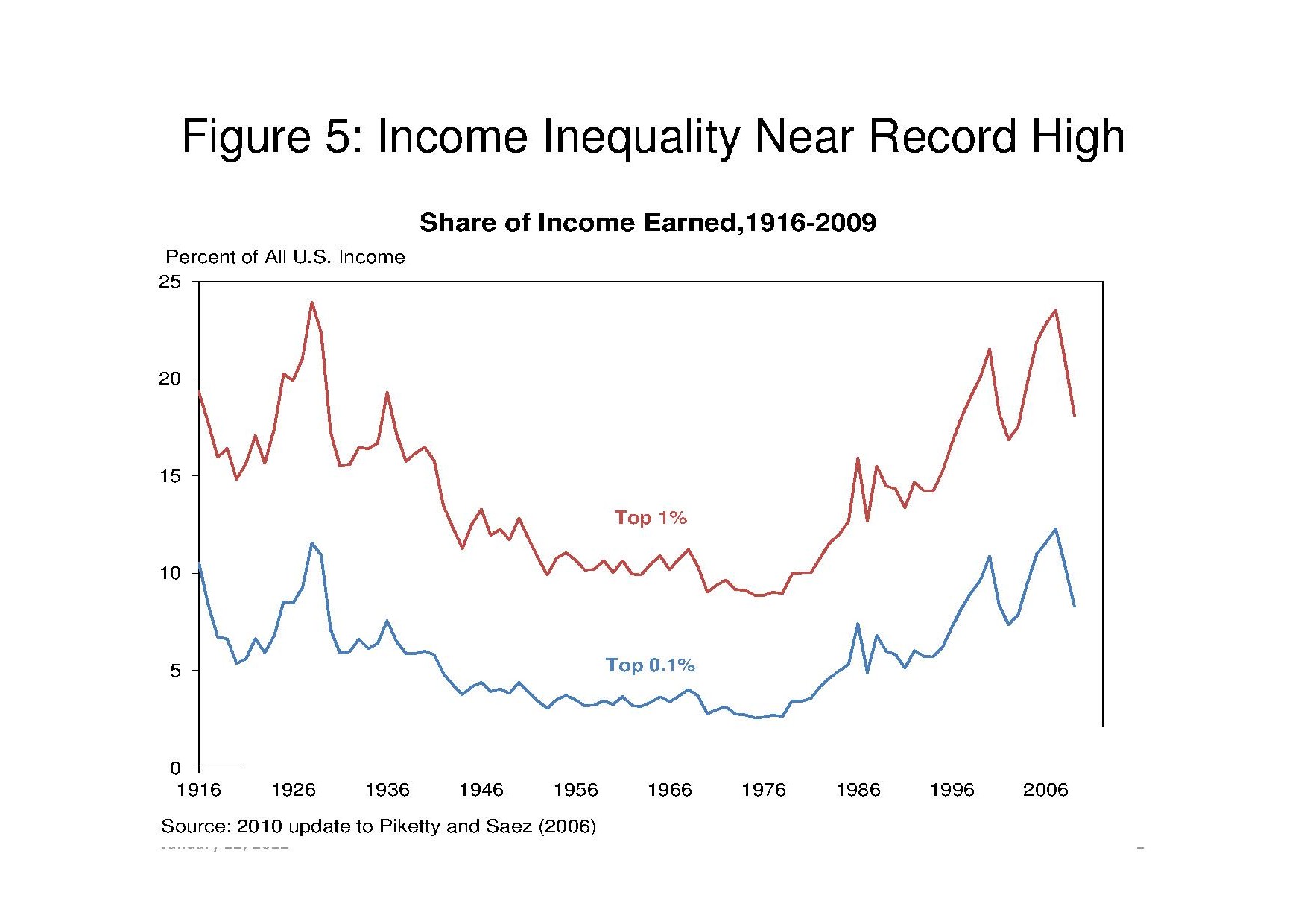Of all the various interesting things that Alan Krueger chairman of the US President’s Council of Economic Advisers touches upon in his speech on rising inequality, one attracted most my attention. It relates to the evolution over the past century of the income share of the richest 0.1% and 1% in the US population.
He mentions that “not since the roaring twenties has the share of income going to the very top reached such high levels”.
True. The two most important financial crises of this century have thus been preceded by an … unprecented rise in inequality. Traders and economists and central bankers, please take note. 50 years from now you might be less unprepared.
But more fascinating to me is the fact that the first Depression in the late twenties was followed by a structural and persistent DECLINE in inequality for almost 60 (sixty) years. Even the Reagan years did not manage to reach a level of inequality as large as the one that prevailed before the 1929 crash.
It would be interesting to debate on what were the causes of such radical and long-term change in the way society arranged its redistributive structure. I presume that the “New Deal” invented by Roosevelt unleashed a cultural revolution that needed a whole generation of youngsters at the time to die before being put aside by a new generation that had no memory at all of what occurred then.
Less for historians and more for policy-makers and ourselves is the other issue that this figure reminds us of. Will this new financial crisis linked with large inequality be followed by a similar structural and long-term redistribution – toward those that have less – that might possibly be capable of writing for the Western world a new social contract over which to base a new fertile period of prosperity?
Said in other terms: is there a new Roosevelt in town? Is that Mr. Obama? And what about Europe? Will the Old Continent (less unequal than the US but nevertheless increasingly unequal, see Fitoussi and Saraceno) be capable of shaping its complicated and burocratic institutions into a political project of lower inequality for growth?
Well. Tough to say. But Mr. Roosevelt showed that political strength and cunning agility (yes, no pan intended: his agility was only heightened by his physical immobility, I bet) were necessary requirements to obtain results. I fear that Europe might lack both and that the current inequality might be solved, as it was then, by solutions that are too little democratic.
